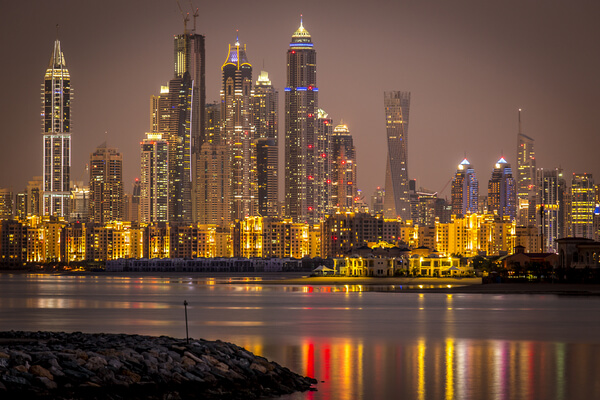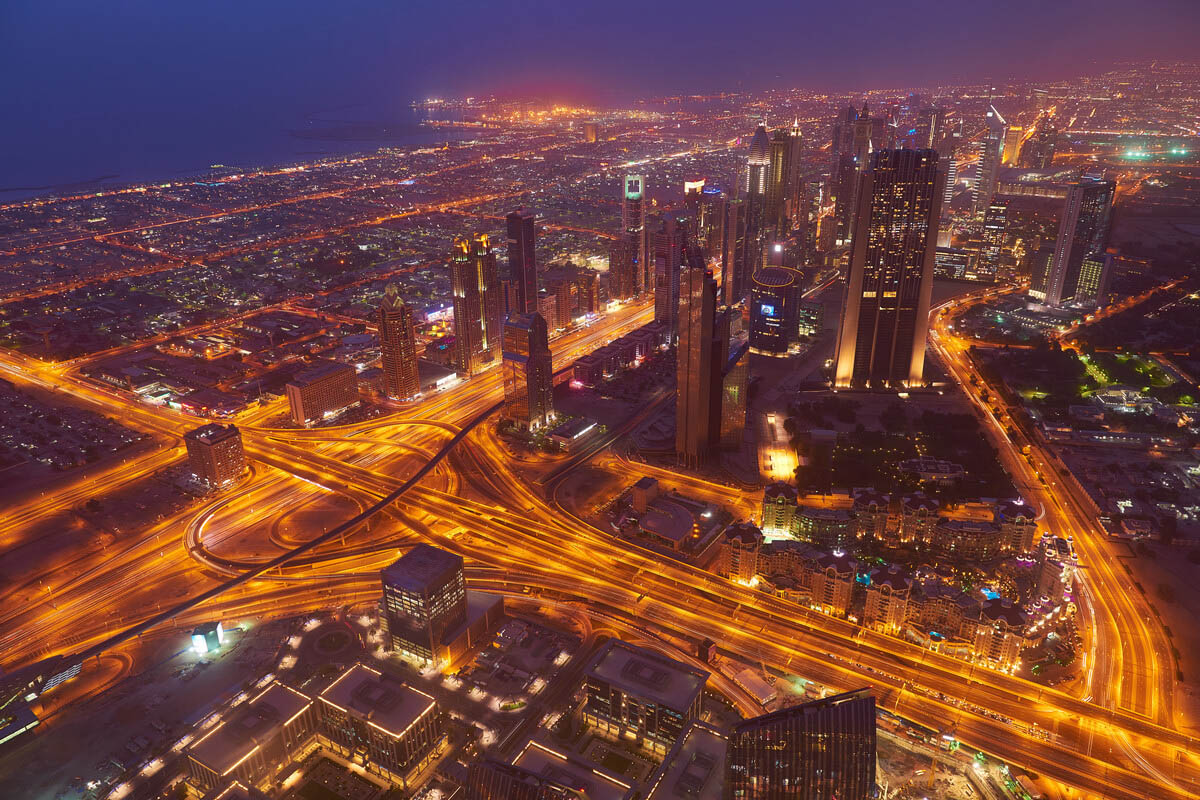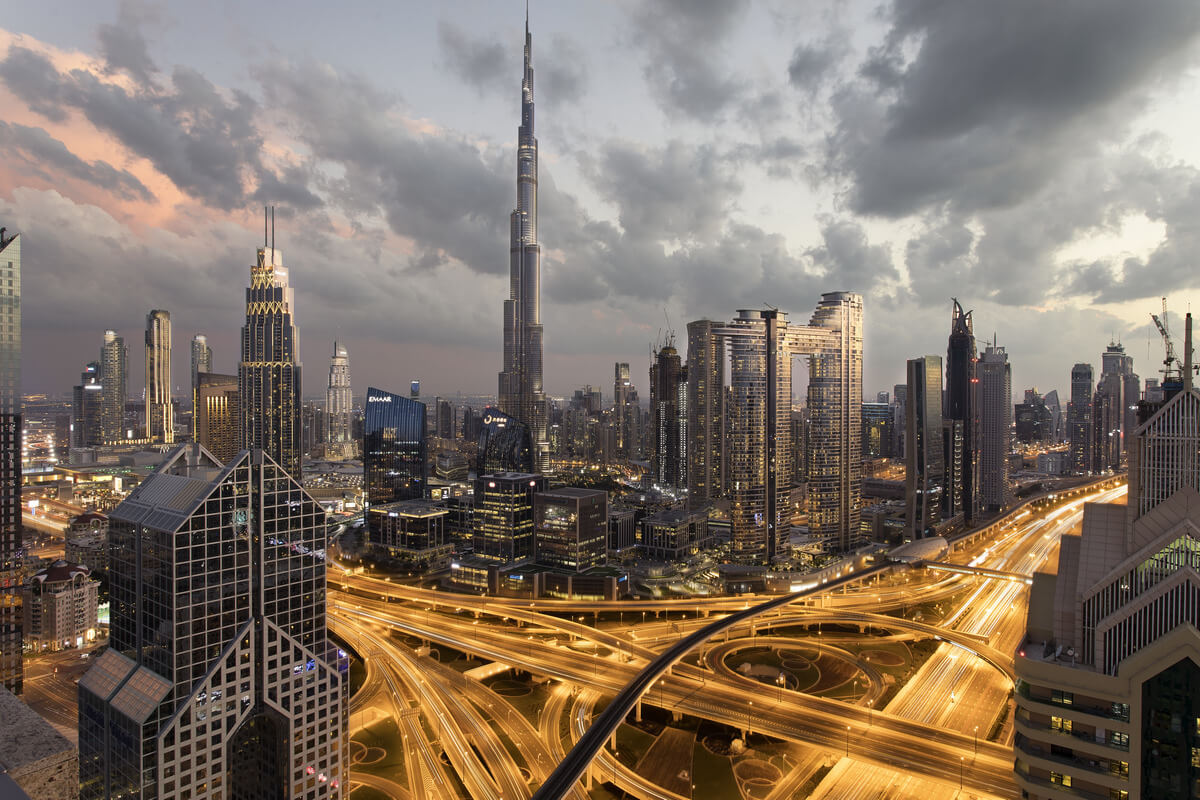
Real estate under construction or off-plan real estate is a fairly new trend in the real estate market and indicative of our time, when promises, expectations and obligations are often more expensive and bring more profit than purchasing or investing in something that really exists.
Dealing with off-plan real estate is a rather risky undertaking if you approach it without preparation.
However, if you choose the right place and property to invest your funds into, such real estate can bring extremely high profits and even have fairly low risks.
Content:
- Why people buy real estate in the Emirates
- Benefits for the developer - why off-plan is offered
- Five reasons to buy property under construction
- Conclusion
It is the choice of the place and property in this issue that comes to the fore, since the existing global economy is built on the principle of the international labor division, where each national market and economy sharpens itself to produce a narrow list of goods where they can show themselves best.
This means that with all the variety of national real estate markets, among them there are both those that are truly mature and developed, best suited to attracting foreign investors, and those where only a risky taker would invest their money.
UAE market, and especially Dubai is among such developed markets, where the sector is important enough for the state to closely regulate it and make it safe.
It is on the example of the Emirates that we will try to explain why it is profitable to buy real estate in such mature markets, why developers themselves are interested in the sale of real estate under construction, and what specific reasons can attract investors and ordinary buyers to spend their funds on an unprepared product.
Why people buy real estate in the Emirates
As we have already indicated, in order to invest in such risky properties such as off-plan real estate, it is necessary to select a sufficiently mature real estate market, which occupies such a large segment of the country's economy that it becomes so-called “too big to fail” - that it is such a significant part of the economy that its fall will lead to grave consequences, so the state is forced to make every effort to create the safest growth conditions.
In the case of Dubai, the real estate market gives up to 20% of the Emirate's GDP, and this forces the government and regulatory authorities to create new regulations and incentives for the sector to continue to attract investments and grow at their expense.
We have the following information on the factual side of the issue:
Real estate in Dubai gives one of the largest ROI (Return on investment) in the world - from 8 to 15%.
The Emirate lacks many tax collections traditional for citizens of Western countries, for example, taxes on income, property, and land are not levied from citizens and residents of UAE.
The state replenishes the treasury at the expense of indirect fees and excise taxes and on favorable terms for the payers themselves.
Among these indirect taxes, we can cite as an example 4% payment on the number of transactions for the purchase of real estate or 5% per year on income from house rental.
You can even get discounts for all this, for example, by concluding special contracts with tenants or using the services of a management company.
You can buy real estate without being a citizen (a foreigner cannot become one) or a resident of UAE, and for this there are two types of ownership of real estate:
- Freehold - free and perpetual ownership.
- Leasehold - lease of ownership for 10–99 years.
You can remotely apply for a mortgage, a business license or buy real estate with registration of a legal entity.
Companies building real estate that are wishing to attract investors and ordinary buyers at this stage of construction, must make insurance deposits to the list of specially accredited banks, at a rate of 20% for the developer and 10% for the contractor. This allows the government to impose sufficient financial risks on companies to force them to fulfill their obligations to depositors in good faith.
A mortgage allows you to cover up to 80% of the purchase price of any property and local agencies, for example, Dubai Land Department (DLD) have their own list of accredited banks where it is safest to take out a mortgage.
The same list exists for real estate agents and brokers.
There is a whole range of different visas that can be obtained for certain needs for foreigners. There are three types of resident visas which are issued for investment in the economy of Dubai - visas for 3, 5 and 10 years. There are golden visas, business visas, visas for remote workers and visiting workers. There are also discount visas for retirees and visas for medical treatment in the Emirate.
Each company that provides an opportunity to invest in real estate under construction must offer a clear payment plan, tied to the actual completion of a particular stage of construction of the facility, moreover, the plan is often extended to a period after construction has completed.
Thus, the buyer pays only part of the amount before receiving the property and when already using the received real estate, they continue to gradually pay the remaining purchase amount.
This and much more attracts many investors and buyers to the Emirate, together with a steadily growing economy and real estate sector.
The demand for off-plan real estate turned out to be so high, that in 2020 it surpassed all other market segments and single-handedly kept the entire construction sector from collapsing due to the coronavirus pandemic.

Benefits for the developer - why off-plan is offered
Let us also look at the market for real estate under construction from the other side - from the side of developers.
Construction companies are doing over just fine in the environment of an intensively growing sector. Dubai real estate, especially luxury real estate, is highly valued in the global market and the flow of people who want to buy it never stops.
However, at the same time, the market for real estate under construction is overflowing with offers with extremely low prices in comparison with the market average prices; the off plan is replete with many advantages, like with offer of payment plans of 1% of the amount per month.
According to natural logic, if someone is trying to sell you something very good, but at prices much lower than market prices, the question always arises - where is the catch.
It should be noted here that there are no pitfalls in the real estate itself. Taking UAE as an example, you will not encounter any problems with the quality of properties and materials, structural reliability, or additional conveniences.
Having bought off-plan real estate, you can be sure that this is a completely ordinary product, that corresponds to the quality of the market. It can be for personal use or for earning without any problems.
The whole described situation with suspicious gains from investments runs into a trap, which falls into any segment of the real estate sector of the economy, when it becomes large enough.
We are talking about overproduction.
Any growing market is hostage to a situation, where an ever-growing demand makes it necessary to steadily increase productive capacity and capital spent on creating proposals.
However, there always comes a point when supply begins to exceed demand, since the limits of demand are always lower than the limits of what can be put on the market.
Constantly growing capital cannot suddenly stop growing, stop expanding production, or slow down the rate of goods creation.
In the context of construction sector, this situation is expressed as follows: developers are forced to increase production capacity to the extent that the supply of built real estate begins to exceed the physical ability of buyers to purchase it.
Stoppage in production, idleness of capacities, is, in fact, suicide for an enterprise in a competitive market - in a market where dozens of construction giants compete.
Capacities must always be loaded with work to turn fixed assets into the product value, since even unused capacities are subject to depreciation, moral and physical wear, and tear.
Production facilities value is transferred to the product that is created with their help. Subsequently, this product will enter the market, where it should be sold and make a profit. This profit allows you to cover the cost of funds depreciation and even expand them.
Thus, if the capacity is idle, it ultimately leads to costs that are not covered by anything.
However, with limited market demand, developers are faced with the question of how to turn the product into profit in general, and how to do it here and now.
The latter is important, as the real estate production cycle takes several years, and companies need to somehow recoup production costs now, pay off loans taken, and mitigate the risks from situations when in a few years the built property will be useless on the market.
At this stage, the idea of selling housing under construction comes forward. Even if it will be difficult to make money on such housing, selling it before completion can at least recoup the costs.
However, convincing people to buy something on the promise, that it will probably be ready after a while, is a losing strategy. If the buyer is offered high risks, then at least the reward for them should be justified.
Therefore, it was necessary to come up with some benefits, benefits that could compensate for the indicated risks for the buyers.
At this moment, price dumping begins, and developers begin to compete, in offering the most flexible and profitable payment plan, to attract a limited number of interested parties to their proposal.
Five reasons to buy property under construction
What are the specific reasons for an investor or, for example an expat, to purchase a property under construction? You can collect enough in all its totality of reasons, but we will focus on five key ones.
Low prices and wide offer
Low prices are what follows from the very nature of the real estate under construction and everything that we have described above.
The developer is extremely interested in the current project payback, but there are many such developers on the market, so each of them competes to give the lowest possible price and an attractive payment plan.
Depending on the area, the specific property, its quality and price category, the brand of the company itself and market demand, the difference between real estate under construction and finished property can fluctuate between 10% and 60%.
Plans also vary. There are payment plans only before construction completion, there are plans that are divided into stages before and after delivery.
There is no firm framework for what a plan can be.
This can be a five-phase plan before construction completion, when the entire amount is divided into five equal parts, each of which is paid as the next stage of construction is completed.
This can be a construction plan in 10 stages, where 10% of the cost is paid for at each stage.
The stage can be mixed: half of the amount is paid in stages before delivery, and then you need to pay 1% of the remaining half monthly.
This option is beneficial for investors, in that having received real estate, they can already start renting it out and pay the remaining amount of the cost with earnings.
There are many variations, and it is difficult to reduce them to specific categories.
In total, over 60,000 new properties are being built in Dubai every year and the pace continues to grow. By 2040, it is planned to commission at least 500,000 properties. The minimum plan for bringing new buildings to the market is 26,000 units annually. However, in 2021 alone, over 63,000 properties will be commissioned.
The city is growing in all directions, and in the last couple of years, residential and commercial clusters on the outskirts of the city have begun to sprout.
Investors can find the best deals, by wisely choosing the time and assessing the degree of market competition.
High returns on deposits
As we pointed out earlier, UAE has some of the highest real estate ROIs in the world, ranging from 8% to 15%. This is played by the fact that, on the one hand, the market is mature enough to attract with its security, but on the other hand, it continues to actively develop to provide a variety of highly profitable investment options to choose from.
Real estate investments provide a high gross income, in other words, net income - the amount of profit that can be obtained from the provision of a lease or resale of real estate before deducting mandatory expenses. Standard gross for finished properties is usually in the region of 10%, however off-plan projects provide a gross income of up to 80-90% of the purchase price.

High rental income
Renting is one of the main ways to make money on real estate. The same is true for the Arab Emirates market.
We have already indicated that an investor can earn from rentals, even before they have paid the amount of real estate purchase, if they have drawn up an appropriate plan.
Each market has its own growth sources in the rental sector, so it is always necessary to research the nature of the region where you are buying property.
Dubai as an example, relies heavily on tourists and expats, followed by businesses and migrant workers.
Against the backdrop of shocks such as the COVID-19 pandemic, a tourism market like Dubai is naturally experiencing a decline, but it is never exhausted and tends to recover quickly. Finally, compensating for losses in one direction of visitors by another direction.
Thus, in recent years, about 17 million tourists came to Dubai annually, but in 2020 the number dropped to 5 million. Nevertheless, the market quickly recovered and in 2021 already began to break the growth records of five to ten years ago.
Large e-commerce companies, remote workers, and wealthy expats who wanted to buy housing at low prices came to the market.
High income from off-plan projects is due to the fact that these projects are built unevenly. While some parts of the property are in full readiness for living, others can exist only on paper.
It turns out that a lot of potential tenants are ready to rent housing at a low price, since the property is not completed, but high demand is still pulling the price up, which allows investors to buy many unfinished properties and quickly compensate for the costs due to competition from tenants.
Linking price appreciation cycles
Returning to the topic of high ROI, off-plan real estate is real estate for growth.
Even without any manipulation of the property by its owner, the cost of housing naturally increases due to the combination of several price increase cycles.
There are four main cycles among them:
- Natural growth in the property’s price as construction progresses.
- Rising market prices due to growing demand.
- Increase in value due to general economic growth.
- Development of a zone around the property, which may turn into an attractive tourist or commercial destination by the time the real estate is completed, thereby making the whole property more expensive.
In addition, investors are not prohibited from reselling real estate even before the construction is completed, so that they are not tied to their assets for years, waiting for the construction of the project to be completed.
Investor protection
We touched on this topic earlier, but we would like to highlight it separately.
The real estate market of the Emirates is quite centralized. In Dubai, all powers have been transferred to two agencies - DLD and RERA. They handle everything from enacting laws and regulations, to consulting, resolving disputes, and approving documents and transactions.
The same agencies are taking many measures to mitigate a large variety of risks that a buyer may face when purchasing a property under construction.
The list of these measures, including:
- Protection against construction delays.
- Compensation for project cancellation.
- Insurance cancellation.
- Protection of fraud and unfair market speculation.
As we have already noted, DLD has its own list of real estate agencies and brokers, as well as approved banks.
These banks can transfer the process of paying the purchase price of real estate according to the plan.
Thus, an investor or a buyer can conclude a purchase contract through a bank, transfer money to it, and the bank itself will gradually pay the cost to the developer for each completed stage of construction.
The developer reports to the bank and DLD, while the bank itself has specialist staff who preliminarily assess the stage passed. Only if the real estate appraiser approves the quality of the completed property, the bank transfers part of the funds to the developer.
We have also already mentioned that each developer and their contractor must make a deposit to the bank in the amount of 20% and 10%, respectively, for each new project. This money should be allocated from the general fund for construction costs.
These and many other measures have been introduced to impose enough risks on companies, so that the latter would be more responsible in approaching their obligations to investors.
Conclusion
Buying or investing in real estate under construction is a risky venture.
For this reason, it is necessary to carefully select the market, property, and developer whom the property will be purchased from.
The market must be mature enough, the developer must have a reliable reputation, and the property must be evaluated according to the market situation.
Thoroughly research the market.
It is necessary to understand what regulations on the part of government departments exist on the market, how they affect deposits safety, and the prospects for earning a profit.
You should also study the existing market benefits, and benefits for investors and buyers, and how they can level the losses from potential excesses.







































